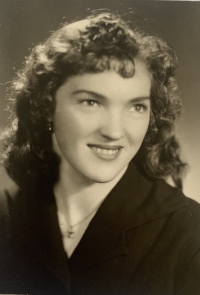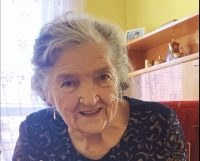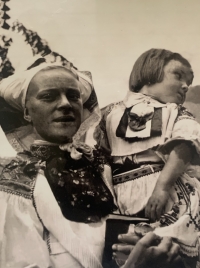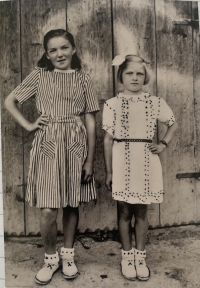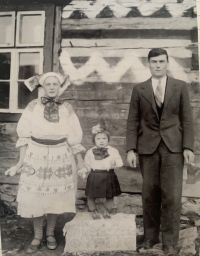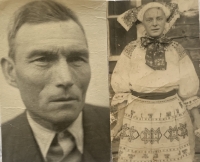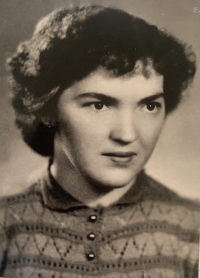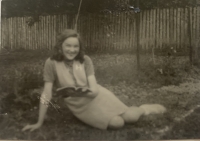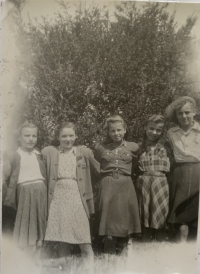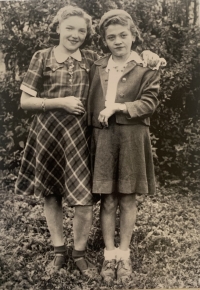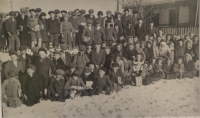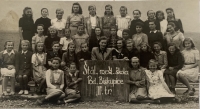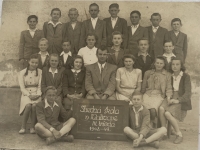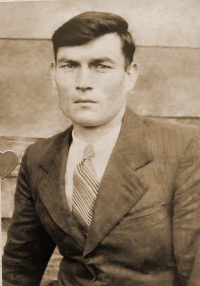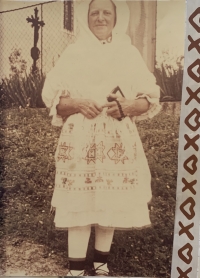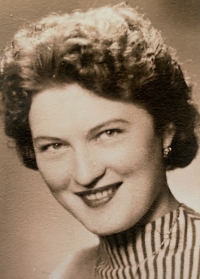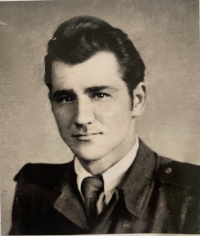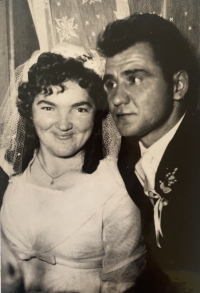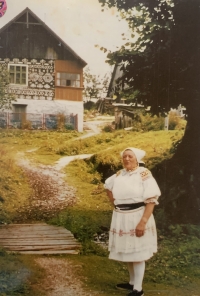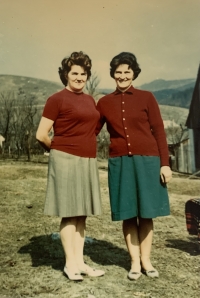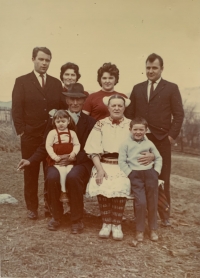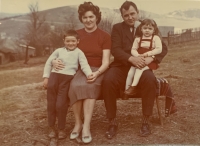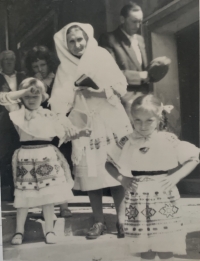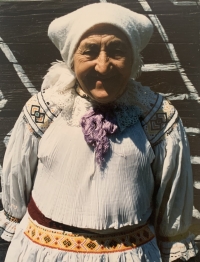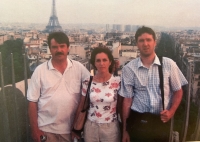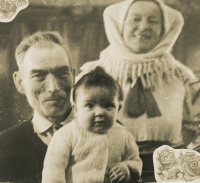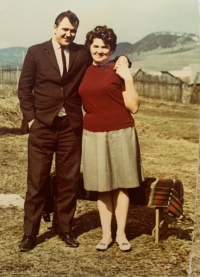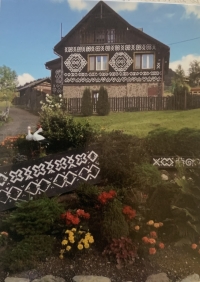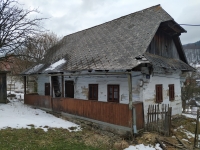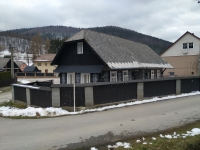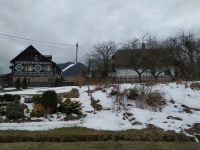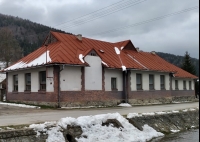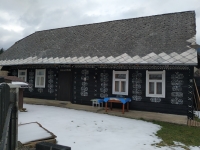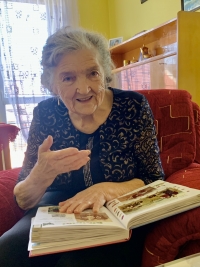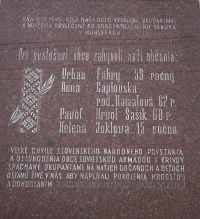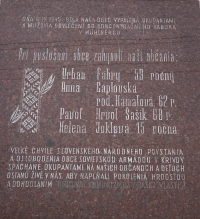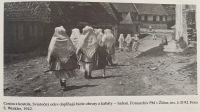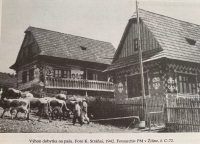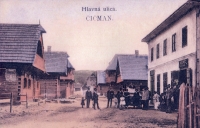We hid in the mountains and cellars for three weeks

Stáhnout obrázek
Alžbeta Ošvátová, nee Hlasicová, was born on May 10, 1935 in Čičmany. Her parents‘ names were Peter and Irena. She had a 4-year-younger sister, Irenka. Her father was a door-to-door salesman, later working in the woods. Mom took care of the economy. During the World War Second, the Čičmany were alternately occupied by partisans and Germans. The partisan staff was located near their house, and an infirmary was set up opposite them. The villagers helped the partisans, supported them with food and accommodation. In July 1942, the Jewish family of the innkeeper Jozef Glásel was taken off from the village. In December 1944, the first boarding was ordered. Pastor Štrba guaranteed the safety of German soldiers in the village. The greatest disaster came at the end of the war on April 6, 1945. The Germans searched for escape routes from the Rajecká dolina and sent three patrols to the village. The local villagers destroyed them. Tanks with mortars came to the village and burned the Čičmany. Elizabeth and her mother, sister and godparents hid in the mountain, in the cellars and in the bunkers. The father was missing, he went with the other men to earn access roads to the village. The Germans took 65 men to the Mühlberg concentration camp. They spent three weeks in winter, snow and fear for their own lives in the mountains and cellars. Later, they came to the already liberated Gápel, where they were cared for by local and Soviet soldiers. The father came for the family at the end of April and they returned to Čičmany. Nothing happened to their abode. About 100 homes and farm buildings burned down and 500 people lost their roofs. The inhabitants of Čičmany left for the originally German villages, which the Germans had to leave. Elizabeth‘s grandparents went to Most na Ostrove. Elizabeth also went to Most, but to school. After four years, she returned and got a job. She worked in Slovena in Rajec. She married and had three children. There she was witness of the invasion of Warsaw Pact troops, as well as the Velvet revolution and the disintegration of the republic. She still lives in Rajec and writes a family chronicle.
